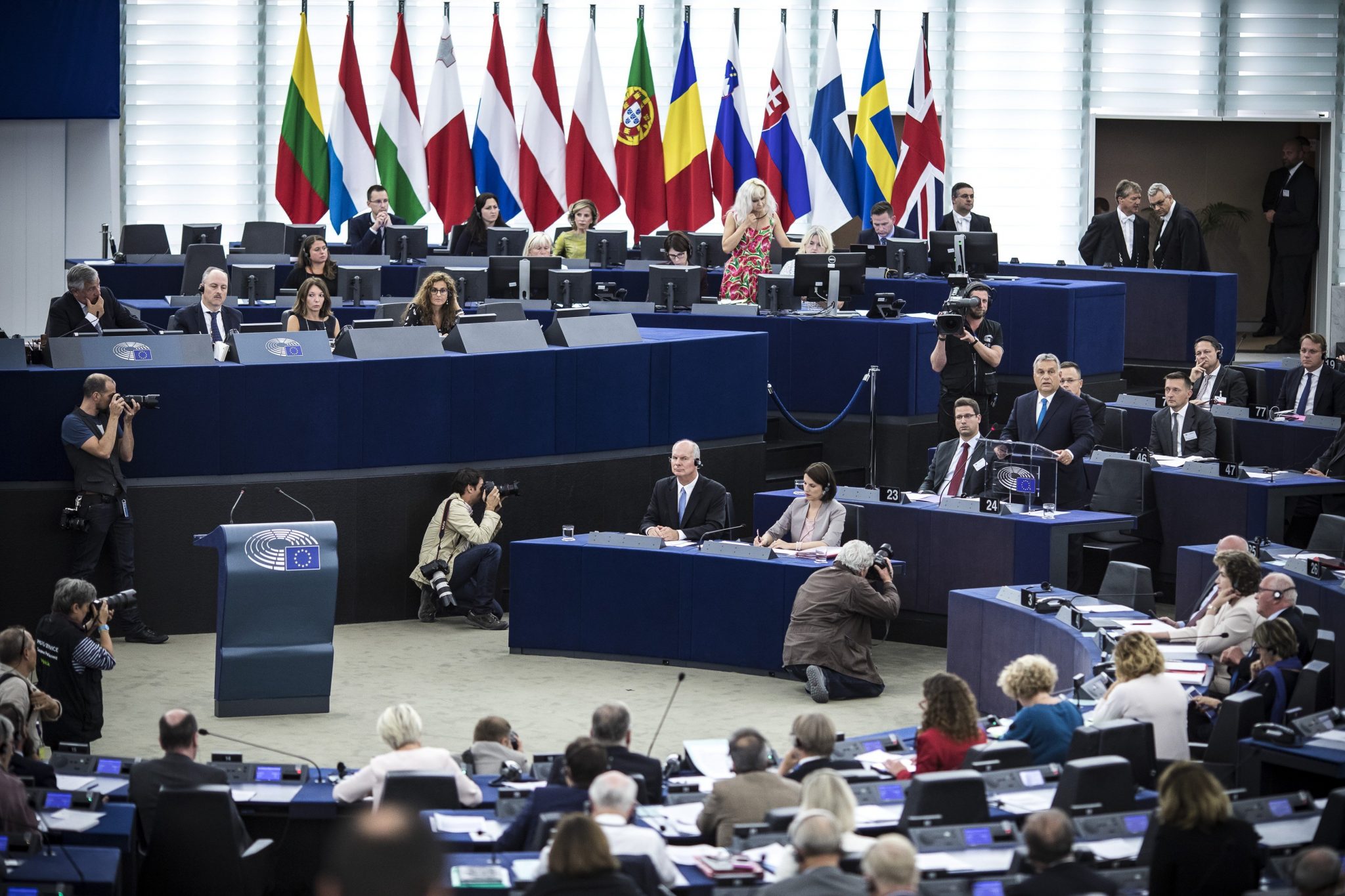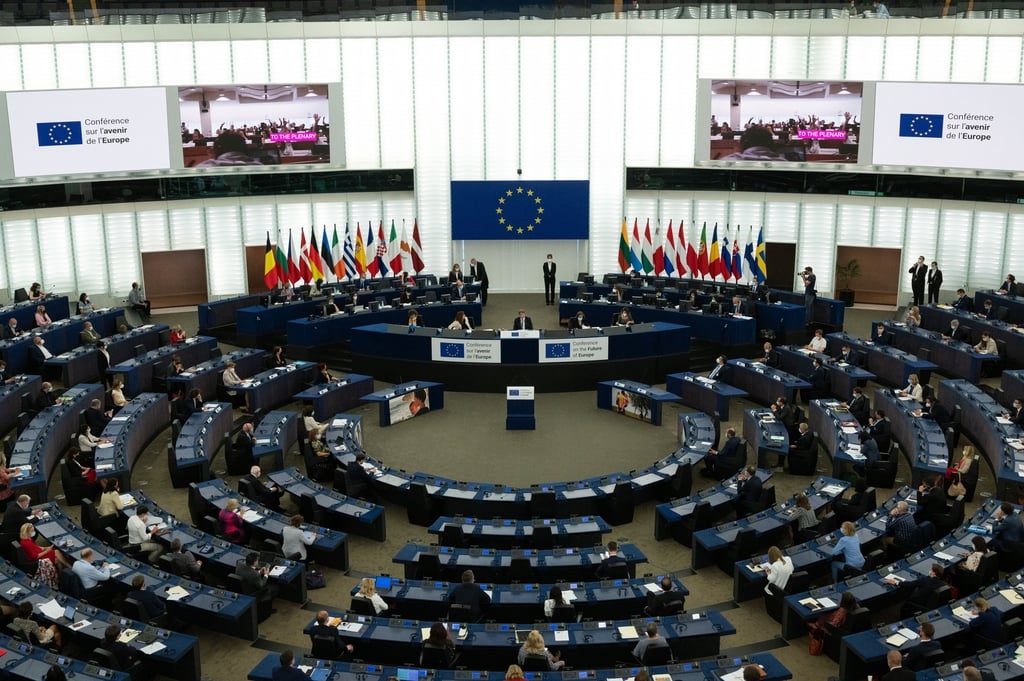
Hungary’s use of NSO Group’s Pegasus spyware was justified in every case it was used in, Attila Péterfalvi said. In an interview with Hvg360, the president of the Hungarian National Authority for Data Protection and Freedom of Information (NAIH) shared details on his organization’s investigation into the Orbán government’s use of the Pegasus spyware. Much of the reasoning of the investigative body is classified information, and thus the grounds for justifying the alleged surveillance of journalists, officials, and political opponents, based on Péterfalvi’s explanation, will never be completely available to the public.
NAIH’s 55-page report concluded that Hungarian authorities’ use of the Pegasus Spyware occurred in complete adherence to Hungarian law. Unfortunately, the answers that would allow the public to tie up the loose ends of the case are classified.
Full Story on Pegasus Remains Behind NAIH’s Closed Doors
Péterfalvi explained that he has seen the cases of investigation, and concluded that they were legally sound. But due to privacy laws, not only is the investigation’s reasoning for judging legality classified, but it will remain classified until 2050. Even after 2050 (when the likelihood of anyone caring about the scandal will be next to nonexistent) the classified status of the information will still require secrecy to be maintained.
Related article
Data Authority Finds No Problem with Use of Pegasus Spyware in Hungary
According to the investigation, the Israeli spyware was indeed used by the National Security Service on several people whose names have appeared in the press in recent months, but the reasoning given by the customers for the surveillance was a risk to national securityContinue reading
Furthermore, based on Péterfalvi’s answers, NAIH is the only organization able to access the information in its entirety while also being adequately authorized to make decisions on the matter. Political entities cannot be entrusted with it due to their subjectivity, and any other state body will not be able to access the cases in as much detail as the Data Protection Authority.
Péterfalvi: EP Special Committee Can’t Make Factual, Substantiated Ruling on Surveillance in Hungary
As regards this, Péterfalvi does not think a Special Inquiry Committee from the European Parliament will be able to investigate the case to any greater effect than NAIH. He emphasized that national security is a question of national competency, and international bodies do not have the same understanding of a nation’s laws and procedures as national institutions.
Because of this, he said, it is not known how the EP will justify its rulings. “No ruling that the European Parliament makes in this regard will be factual or substantiated,” he said.
Related article
Pegasus Misuse to be Investigated by EP Special Inquiry Committee
"It’s time for Europe to finally realize this, we need to ensure protection for the victims of the case," Momentum MEP Anna Donáth wrote.Continue reading
Péterfalvi also emphasized that political bodies cannot be the ones making decisions on surveillance. On the question of legislation, he assumes the election of April 3 will result in neither party having a two-thirds majority. In this case, it will be possible to reach political consensus on the potential reorganization of legislation.
Anyone Can Be Watched, Listened To, Spied On
Pegasus, the NAIH president explained, is not only meant to snuff out terrorism and organized crime. It can be used on anyone who may be a potential threat to national security, as long as there is a probable cause to begin such intrusions into one’s personal life.
“I can accept that this does not sound reassuring to many people,” Péterfalvi said. “Our investigation reached the conclusion that in specific, analyzed cases, surveillance was justified.” Such justifications, he explained, were provided by the Security Service in every case, and all were found to be appropriate by NAIH.
Related article
EP Special Committee Condems Hungary over Fudan University, Pegasus Spyware
According to a draft report approved by the committee, the Orbán government is helping China and Russia with their geopolitical objectives and spreading disinformation in the region.Continue reading
One may assume that if those who were spied on were national security threats, there should be criminal proceedings against them. But according to Péterfalvi, the suspicion of being a security threat does not automatically mean a surveillance operation will be followed by a criminal trial.
We can’t expect that information gathering is only substantiated if I can read about a trial in the news afterwards.”
Fact
Looking at their backgrounds, some alleged victims of surveillance don’t seem to be security threats, but rather political opponents to Fidesz. Based on the findings of the Pegasus project, notable examples from the more than 300 Hungarian surveillance targets
include:
- Four journalists; two employees of investigative outlet Direkt36, a former journalist of liberal weekly Hvg.hu, as well as a fourth journalist who has chosen to remain anonymous,
- A Hungarian photographer who collaborated with an American journalist covering the Russian-led International Investment Bank’s affairs in Budapest,
- Zoltán Varga, owner of Central Media Group Plc., who has allegedly faced multiple attacks from government circles, as well as other businessmen who joined Varga in a dinner meeting in 2018. Among these visitors was Attila Chikán, an economics professor and former Minister of the Economy in the first Orbán government, known forbecoming very critical of the Fidesz leader, whose phone number was also found on the list,
- The son of former oligarch Lajos Simicska and a close confidante of Simicska. Simicska initiated an open media campaign against the government during the elections of 2018,
- One of Central European University’s international students, Adrien Beaudeuin, who was arrested in 2018 for taking part in an antigovernmental protest.
- György Gémesi, the conservative mayor of Gödöllő
A Privacy Law from 1995 in the Digital Age of 2022
Hungary’s national security law on secret information gathering dates back to 1995, and Péterfalvi says the foundational principles of the law have not changed since then. Asked whether the soon to be 25-year-old law is too broad, he responded that finding a way to rewrite the law now would be very difficult.
Péterfalvi noted that there is no law on an international level which has a better solution, and that despite at least 10 other countries being impacted by the scandal, Hungary is the one being shamed.
Of course, the interpretation for authorizing secret information gathering is broad, but what makes us think the laws are different elsewhere?”
Questions Raised Around Authorizations
Hvg360 brought up the mention of a 2018 Ab-resolution which declared that “The person exercising the power of authorization only has the right to sign, but does not have the right to pass decisions.” This is relevant when considering that the Justice Ministry argued that former Deputy Justice Minister Pál Völner was authorized to sign off on surveillance requests in place of Justice Minister Judit Varga.
Related article
Ministry of Justice Shares Numbers on Covert Intelligence Authorizations
Each year since 2015 more and more information gathering requests were authorized, with 2021 expected to be the most active.Continue reading
In response to why this mention was not elaborated on further, Péterfalvi stated that this area falls under the obligation of the National Assembly’s Committee on National Security. If the committee wishes to perform an investigation, it is free to do so.
Hvg360 also asked if it is all right that the European Court of Human Rights ruled in 2016 that Hungarian law goes against the European Convention on Human Rights, since an individual who is not independent from the government, the justice minister, was the one authorizing surveillance.
In response, Péterfalvi brought up that there are three steps to surveillance: authorization, execution, review. The minister’s authorization, he said, is only one step in the process, and it would be difficult to reroute that element, since authorization falls under governmental competence, which is the responsibility of the executive.
Related article
Direkt36: Member of the Metropolitan Electoral Commission Also on Pegasus Surveillance List
Two phone numbers of the lawyer, who also teaches at the University of Public Service, are part of the leaked database containing targets of the military grade spyware.Continue reading
Members of the United Opposition have accused Péterfalvi of not staying true to his role as a nonpartisan official. To this he noted that NAIH adheres completely to European laws on nonpartisanship from investigative bodies. Personally, he considers himself to be the most secure in his position, aside from the president, noting also that he was elected to his position with an overwhelming majority. “My conscience is clear,” he said, “I can tell you that.”
Featured photo illustration by Szilárd Koszticsák/MT





